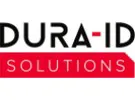Eco-conscious customers demand a reduction in plastics and an increase in sustainable packaging that does not damage the environment. After all, horticulture in itself is the preservation and beautification of the environment, so why damage it through lazy packaging?
There are a lot of products that are available across the industry to help you keep on top of your recycling game.
Eco-friendly plant pots
Plant pots can be made from a variety of materials, including wood, stone, metal, and terracotta. Terracotta pots are excellent because the manufacturing process does not include any harmful chemicals, and they are porous, which allows for air and water to easily move through to prevent root rot and soil disease.
Black taupe plastic pots are another solution you may look for. At the moment, black plastic pots cannot be recycled from the kerbside because PIR sensors at recycling facilities cannot recognize carbon-black pigments – this is why the lighter the color, the easier it is to recycle. With no carbon, taupe plastic pots can still be recycled while you can benefit from the darker color for your plants if you want to protect them from the light.
Biodegradable fiber seed pots are a great alternative to plastic pots. They are made from peat free, biodegradable wood pulp, meaning you can plant them straight into the ground. They are also the perfect size for planting seeds or cuttings and biodegrade naturally into the compost when you plant out the whole pot.
Biodegradable and recyclable labels and tags
A large portion of Dura-ID's horticultural stock labels has been recyclable since they started producing them, including the main two materials that they use across a large variety of sectors: polyplas and laserplas. Polyplas are horticultural stock labels for thermal printing, while laserplas are used in laser printing. The self-tie tags provide an easy identification procedure, even if you are wearing thick gardening gloves.
Peat-free growing media
The depletion of peat bogs through harvesting peat in growing media is a huge concern for the industry. Peat-free composts are great for water retention but, for plants that require good drainage, adding a bit of grit and sharp sand to the mix will help support growth. A peat-free growing media will contain a mixture of organic materials such as composted bark, wood fiber, rock wool, and perlite.
Always remember to follow the instructions and use the recommended fertilizer, because different formulas may contain separate necessary balances of nutrients. The HTA says: “The industry has developed a Responsible Sourcing Calculator for growing media. This assesses the different environmental impacts of different components of growing media, and generates a ‘score’ for how responsibly sourced a product is.”
For more information: Dura-ID
Dura-ID
[email protected]
www.dura-id.com
